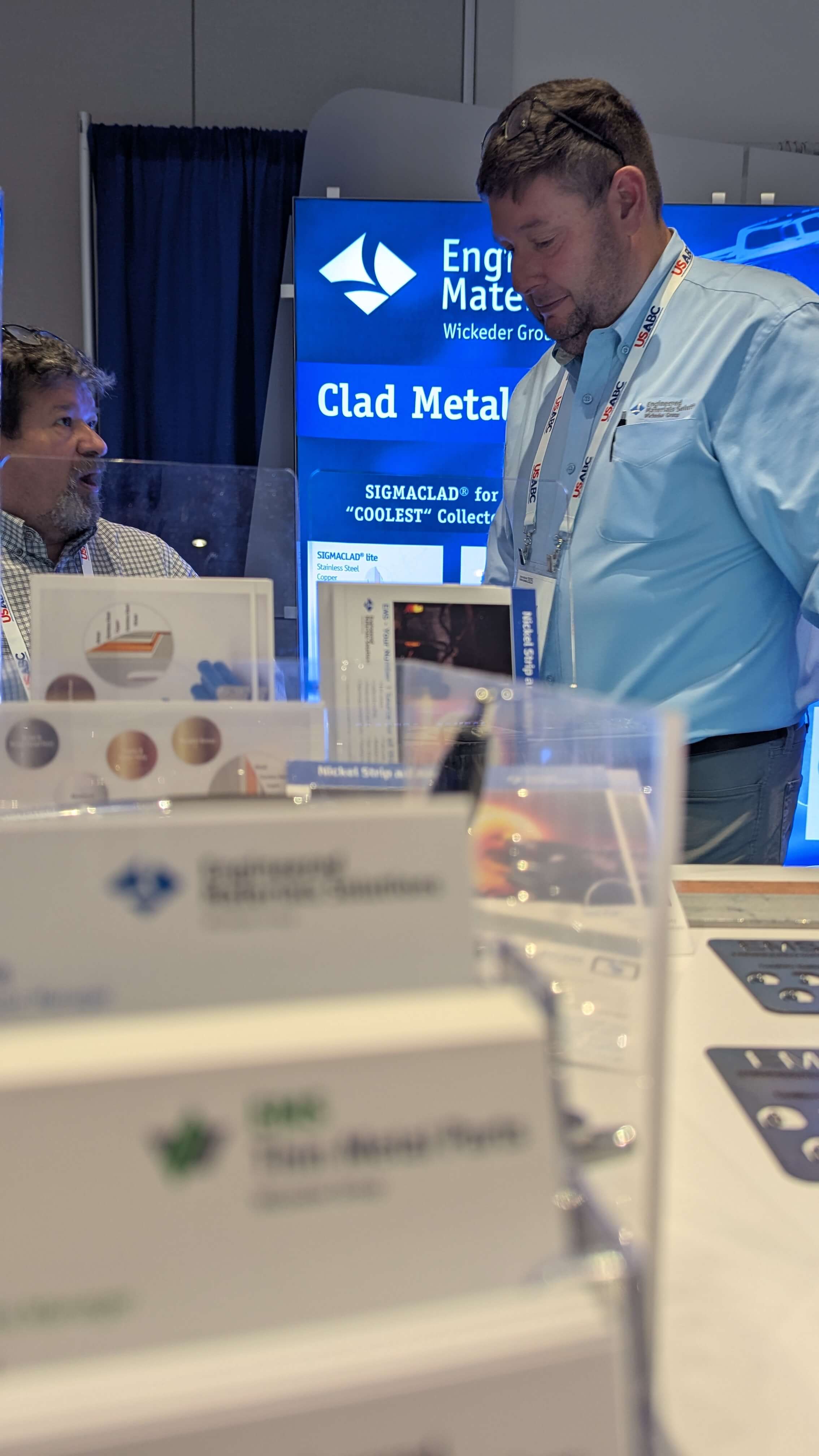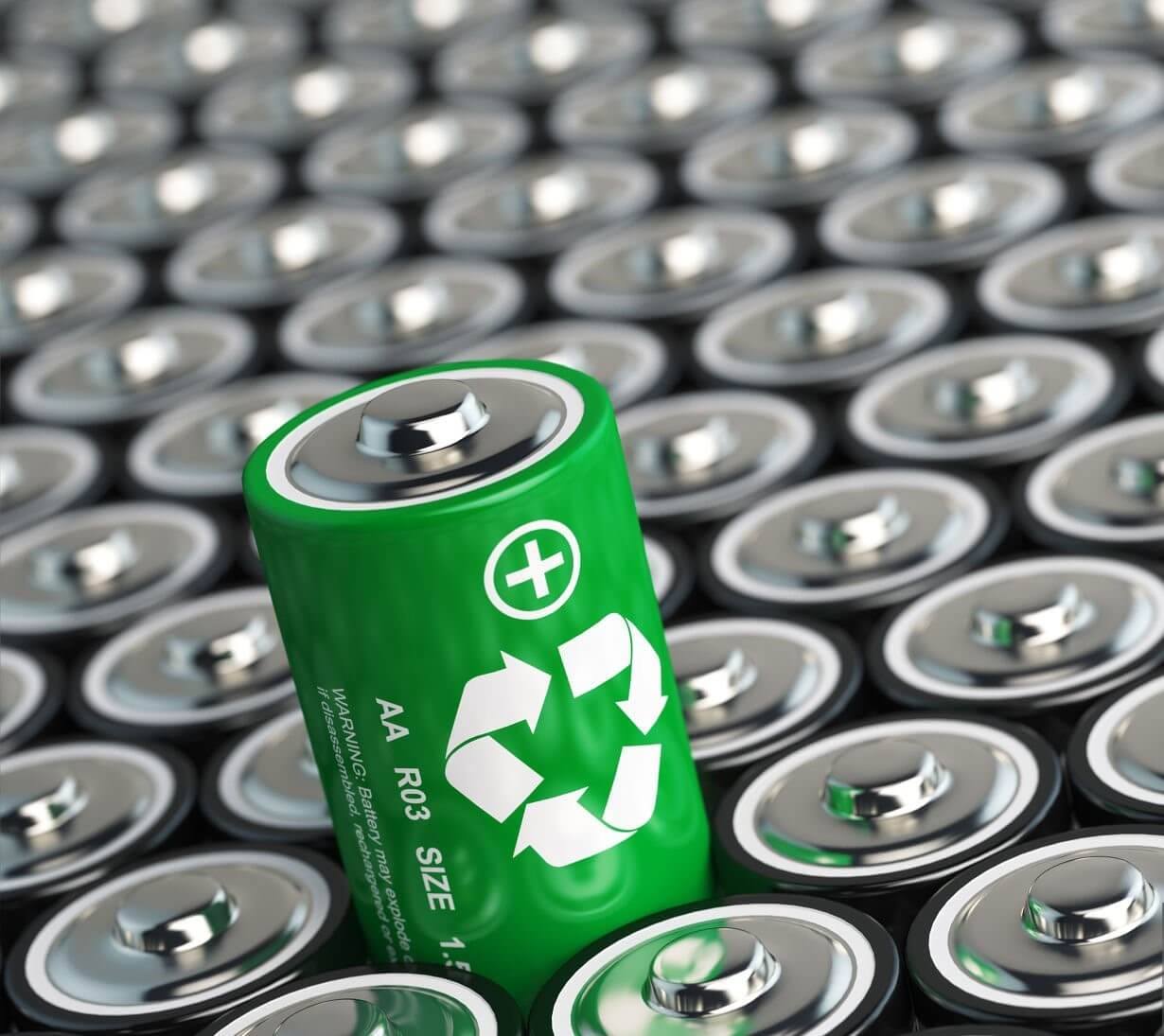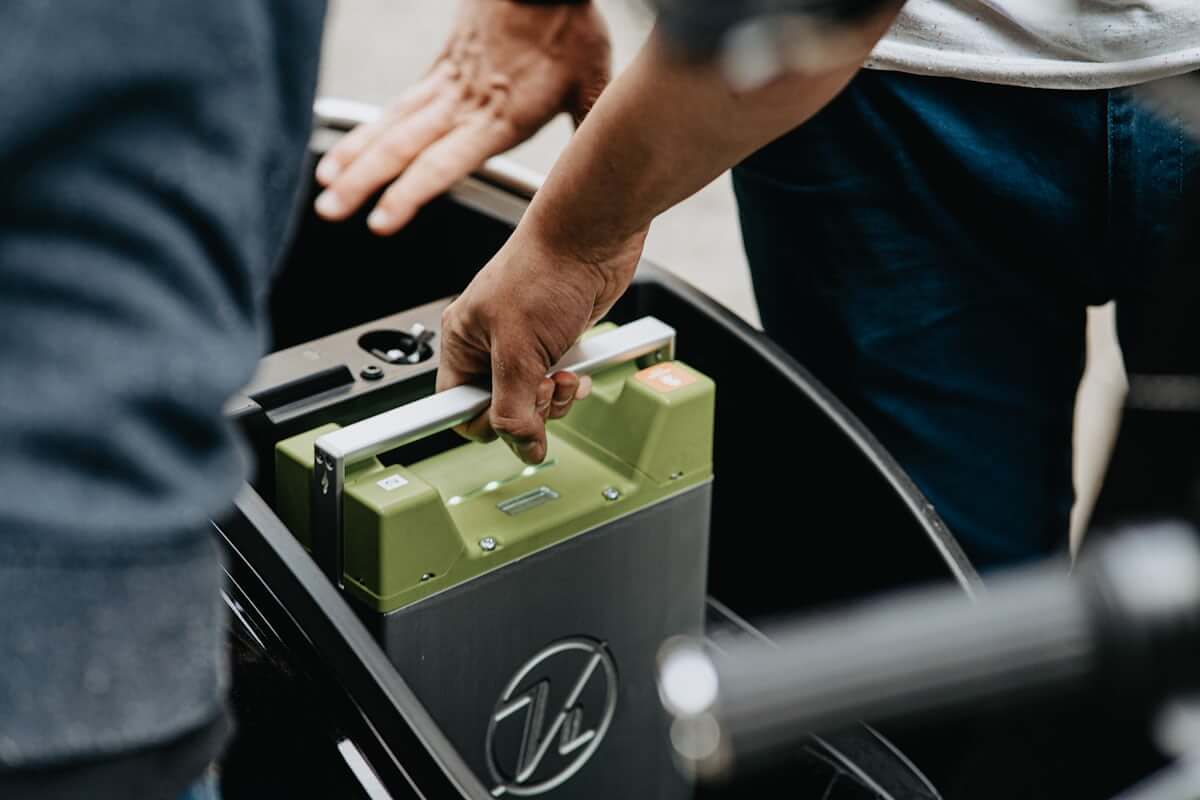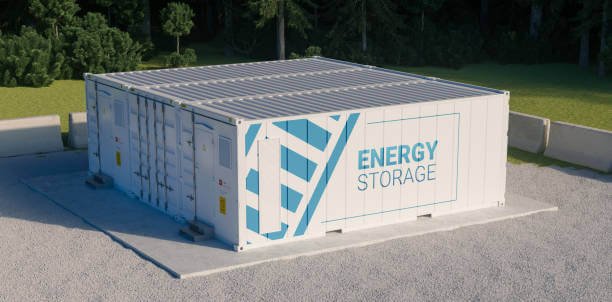EMS at the International Battery Seminar 2025: A Look at the Future of Battery Innovation
The 42nd annual International Battery Seminar wrapped up last week in sunny Orlando, Florida, and it delivered on its promise to be the year’s most important gathering for the global battery community.
With high-profile attendees ranging from Apple and Sony to BMW, Ford, Panasonic, and Volkswagen, the event brought together every link in the advanced battery supply chain—including OEMs, national labs, R&D leaders, battery manufacturers, pack integrators, and policymakers.
Engineered Materials Solutions (EMS) was proud to be part of the action, exhibiting our high-performance clad metals and engaging in conversations that revealed not just the pulse of the industry—but where it’s headed.
And we made sure to bring friends. Thin Metal Parts and Auerhammer Metallwerk also attended the event, sharing the space at booth #112.
We spent the week connecting with leading minds, asking questions, and gathering insights, giving us a clearer picture of the future of batteries.
After the week, we found there are three topics transforming the battery industry:
- Battery Recycling
- Advances in EV Battery Applications
- Sustainable Grid Solutions
Let’s dive into what we learned.

Battery Recycling: From Urgent Need to Global Strategy
One of the most discussed topics among the attendees, speakers, and exhibitors was battery recycling.
From large-scale OEMs to next-gen startups, everyone’s eyes are on the future of battery recycling.
Why It Matters
As lithium-ion batteries proliferate across electric vehicles, consumer electronics, and grid storage, the demand for sustainable end-of-life strategies has never been greater. Traditional mining of critical materials—like lithium, cobalt, and nickel—is unsustainable and geopolitically sensitive. Battery recycling, on the other hand, provides a viable path to:
- Reduce raw material dependency
- Lower carbon emissions
- Cut costs for future battery production
- Comply with global legislation and IRA guidelines
Insights from the Seminar
Organizations like Argonne National Laboratory’s ReCell Center, OnTo Technology, and Cirba Solutions shared cutting-edge work in direct recycling, cathode healing, and black mass processing. These innovative methods go beyond traditional smelting, offering more energy-efficient, cost-effective ways to recover and repurpose critical battery materials.
For example, presenters at the Battery Recycling Conference showcased advancements in:
- Pilot-scale recycling technologies
- Domestic supply chain development
- Blockchain-enhanced material traceability
- Water management in recycling processes
As one seminar presentation noted, the future of the battery industry depends not just on innovation—but on reinvention.
📚 Learn more about EMS’s commitment to sustainability and our advanced material solutions on our EMS Home Page.
🔗 Explore our clad metal offerings for battery applications.
🔗 Visit our partner site Technical Materials, Inc. (TMP) for more on engineered materials.

EV Battery Applications: Performance, Lightweighting & the Road Ahead
Global demand for electric vehicles is skyrocketing—and that momentum was on full display at the seminar. EV battery innovation is accelerating as manufacturers seek to push boundaries on range, weight, cost, and safety.

What’s Driving Innovation
Battery design is shifting to better reflect real-world conditions and customer behavior. From cell-to-pack architecture and lightweighting strategies to solid-state commercialization and wireless battery management systems (wBMS), engineers are rethinking everything.
Key insights from the EV Battery Applications Conference included:
- Solid-state batteries could transform energy density and safety, but challenges around scalability remain.
- Cathode degradation and anode-cathode balance are at the forefront of long-term performance improvement.
- Advanced silicon-carbon nanocomposites are showing real promise, offering up to 2,000 mAh/g in capacity.
- AI-powered digital twins are helping manufacturers simulate and optimize battery behavior in real time.
As this new wave of technologies emerges, EMS’s materials play a vital supporting role. Our SigmaClad metal solutions offer unmatched thermal conductivity and mechanical strength while supporting lightweighting and long lifecycle design in EV packs.
🚗 Read more about how EMS supports electric mobility with our battery busbars and connectors.
📦 Discover how EMS helps improve battery pack performance with custom thermal management materials.
Sustainable Grid Solutions: Storage, Resilience & the Energy Ecosystem
From city-wide blackouts to the rise of renewable energy, the stability of the global energy grid is under pressure. And increasingly, grid-scale batteries are being positioned as a critical solution.
What We Heard
At the Grid-Scale Energy Storage Conference, presenters explored next-generation batteries designed to support the grid’s most pressing needs:
- Long-duration storage for intermittent solar and wind energy
- Improved power quality and peak load shifting
- Microgrid deployment in remote or high-demand areas
The star players? Sodium-ion, zinc-bromide, and sodium-sulfur batteries—each offering benefits in cost, thermal safety, and availability of materials. Experts from Oak Ridge National Laboratory, BASF, and Peak Energy showed how these chemistries could complement or even replace lithium-ion in certain applications.
🔋 Check out our insights into material performance in high-capacity storage solutions on the EMS blog.
📡 Learn about microgrid integration and battery reliability improvements from experts at Drexel University and Spearmint Energy.

Looking Ahead
From recycling systems that close the loop to next-gen EV powertrains and smarter grid infrastructure, the 2025 International Battery Seminar made one thing clear: this industry is charging ahead at full speed.
At EMS, we’re proud to be a part of that journey—designing and delivering material solutions that power tomorrow’s energy ecosystem.
If you stopped by our booth—thank you! If you missed us, we’d love to connect.
💬 Reach out anytime to discuss how EMS can support your battery design, performance, or manufacturing challenges. Email us anytime at solutions@emsclad.com
🌐 Visit www.emsclad.com to learn more.